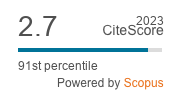Corpus delicti: From Tōkyō monogatari to Tokyo-Ga
Keywords:
Critical Media Studies, Jean Baudrillard, Wim Wenders, Yasujirō OzusAbstract
This essay will deal with the main characteristics of Ozu’s oeuvre, mainly with the interesting relationship that he established with the cinematographic camera. It will be analyzed the way in which his oeuvre deals with the important transformation that the Japanese society underwent during the second half of the last century. In the second part, the essay will deal with Wenders’ documentary film Tokyo-Ga (1983) and his analysis of social transformations in Japan during the Eighties. Following this framework, the effects of video-electronic images on the socio-technological context analyzed by Wenders will be examined. Further, I will inquire into the way in which simulacra began to populate our reality and seemingly replace the real. To conclude, through some reflections on the media condition highlighted by Wenders in Tokyo-Ga, I will also analyze the passage from the video-electronic condition to our current media condition.
Metrics
References
Alter, N. (1997). Documentary as Simulacrum: Tokyo-Ga. En R. F. Cook y G. Gemüden (Eds.), The Cinema of Wim Wenders: Image, Narrative, and the Postmodern Condition (pp. 136-162). Detroit: Wayne State University Press.
Bachelard, G. (1931). L’Intuition de l’instant. Paris: Stock.
Barthes, R. (2002). L’empire des signes. En Oeuvres complètes, tomo III, libres, textes, entretiens 1968-1971. Lonrai: Seuil.
Baudrillard, J. (1995). Le crime parfait. Paris: Éditions Galilée.
Bazin, A. (2008). Que’est-ce que le cinéma? Paris: Éditions du Cerf.
Bordwell, D. (1988). Ozu and the Poetics of Cinema. Princeton: Princeton University Press.
Caronia, A. (2008). Il cyborg. Saggio sull’uomo digitale. Milano: Shake Edizioni.
Deleuze, G. (1966). Le bergsonisme. Paris: Puf.
Deleuze, G. (1968). Différence et répétition. Paris: Puf.
Dorfles, G. (2008). Horror pleni. La (in)civiltà del rumore. Roma: Castelvecchi.
Engell, L. (1999). Fernsehen mit Gilles Deleuze. En O. Fahle y L. Engell (Eds.), Der Film bei Deleuze / Le cinéma selon Deleuze (pp. 468-481). Weimar: Verlag der Bauhaus-Universität/Presses de la Sorbone Nouvelle.
Eugeni, R. (2015). La condizione postmediale. Milano: La scuola.
Flusser, V. (1996), Ins universum der Technischen Bilder. Göttingen: European Photography.
Foucault, M. (1984). Des espaces autres. Architecture, Mouvement, Continuité (n. 5 –octobre 1984), pp. 46-49.
Halbwachs, M. (1997). La mémoire collective. Paris: Éditions Albin Michel.
Herrigel, E. (1999). Zen in the Art of Archery. New York: Vintage Books.
Hume, D. (2000). A Treatise of Human Nature. Oxford: Oxford University Press.
Lefebvre, M. (1999). On memory and Imagination in the Cinema. New Literary History Cultural Inquiries (Vol. 30, N. 2) pp. 479-498. The John Hopkins University Press.
Leibniz, G. W. (1996)(1765). Nouveaux essais sur l’entendement humain / Neue Abhandlungen über den menschlichen Verstand. En G. W. Leibniz, Philosophische Schriften Band 3.1 y 3.2. W. von Engelhardt y H. H. Holz. (Eds.), Frankfurt am Main: Suhrkamp.
Liverani, M. (2009). Antico Oriente. Storia, società, economia. Roma-Bari: Laterza.
Lyotard J. F. (1979). La condition postmoderne. Paris: Minuit.
McLuhan M. (1994). Understanding Media: The Extensions of Man. Cambridge Massachusetts: MIT.
Monico F. y De Kerckhove, D. (2016). Cyber-sorveglianza, guerra e religione. Il mondo a una dimensione. Azimuth. Philosophical Coordinates in Modern and Contemporary Age, (IV n. 7).
Ozu, Y. (1970). Ozu on Ozu: The Talkies. Cinema (6. No. 1).
Richie, D. (1959). The Late Films of Yasujiro Ozu. Film Quarterly (13.1 - Fall 1959).
Richie, D. (1962). Japanese Movies. Tokio: Japan Travel Bureau.
Sontag, S. (1973). On Photography. New York:Picador.
Spielmann Y. (2005). Video. Das reflexive Medium. Frankfurt am Main: Suhrkamp.
Sugimoto, Y. (2010). An Introduction to Japan Society. Cambridge: Cambridge University Press.
Suzuki, D. T. (1964). An introduction to Zen Buddhism. New York: Grove.
Thrift, N. (2007). Non-Representational Theory. London: Routledge.
Tomasi, D. (1996). Ozu Yasujiro, viaggio a tokio. Torino: Lindau.







 Portal de Revistas de la Universidad de Piura.
Portal de Revistas de la Universidad de Piura.